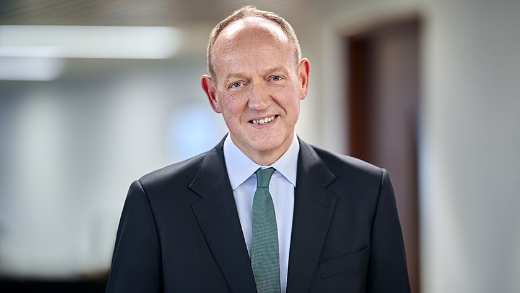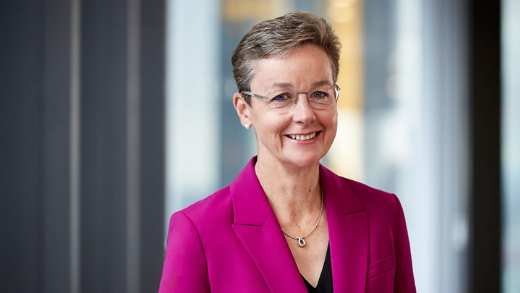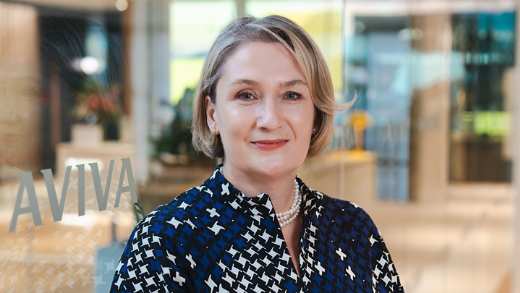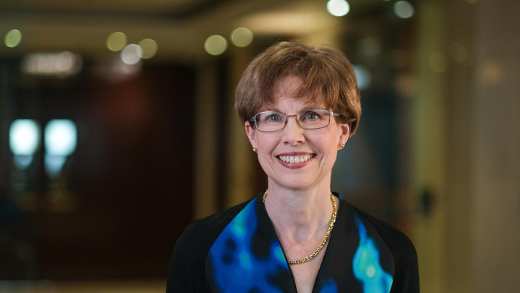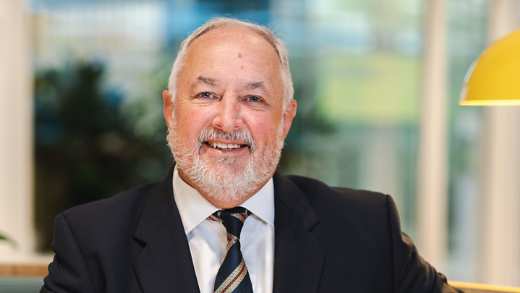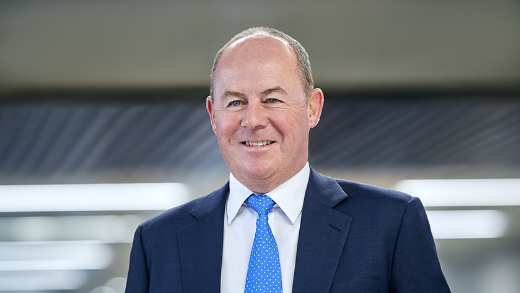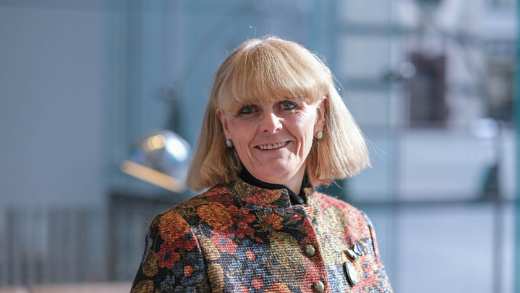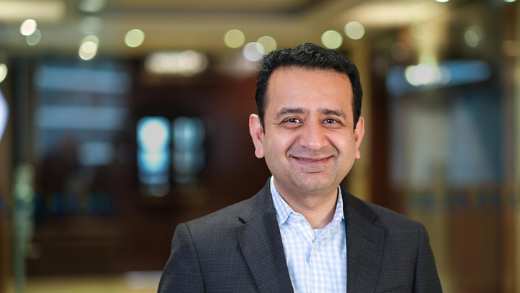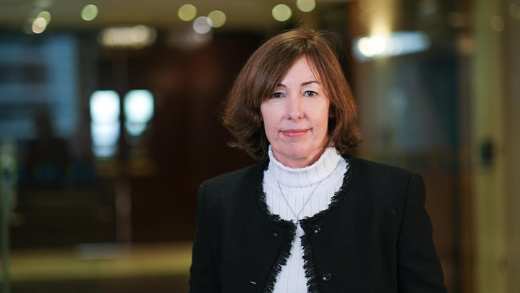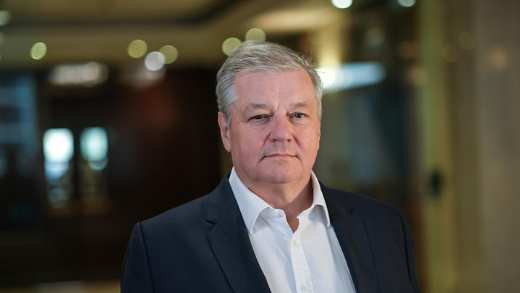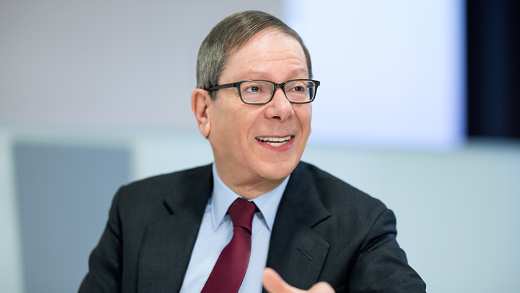
Dame Amanda Blanc
Group Chief Executive Officer
Aviva is financially strong. We are trading consistently well. Our prospects have never been better. We have leading businesses in growing markets, a fantastic brand, and we are investing substantially to make service better for our customers. All the ingredients are in place to ensure Aviva continues to deliver an outstanding performance for our customers and our shareholders. I’m certain we will.
Nationality: British
Appointed to the Aviva plc Board as a Non-Executive Director on 2 January 2020 and as Group Chief Executive Officer on 6 July 2020.
Amanda was born and bred in Wales, having grown up in the Rhondda Valley, and many of her family still live there.
She started her career as a graduate at one of Aviva’s ancestor companies, Commercial Union. Following success in senior executive roles across the insurance industry, she came back to Aviva as CEO in July 2020.
Priorities at Aviva
Amanda has greatly simplified Aviva, successfully divesting eight non-core businesses. Aviva is now focused on our core markets in the UK, Ireland and Canada. Amanda has also overseen a significant strengthening of Aviva’s financial position.
Amanda is now focused on accelerating Aviva’s performance: capitalising on the structural growth opportunities in our core markets; providing customers with a simpler, more personalised offering; transforming our cost base and delivering our market-leading sustainability commitments. Aviva is the first major insurer in the world to target becoming net zero by 2040.
Career highlights
Amanda was formerly Group CEO at AXA UK, PPP & Ireland and CEO Europe, Middle East, Africa & Global Banking at Zurich Insurance Group. She also held executive leadership positions at Towergate Insurance Brokers, Groupama Insurance Company and Commercial Union.
She has previously served as Chair of the Association of British Insurers, Chair of the Insurance Fraud Bureau and President of the Chartered Insurance Institute.
In 2022, Amanda was included in the Financial Times 25 most influential women of 2022 and in January 2023 named as The Sunday Times business person of the year. Download the article here.
Qualifications and responsibilities
Amanda is an Associate of the Chartered Insurance Institute and has an MBA from Leeds University. She also holds a BA (hons) in history from the University of Liverpool.
In 2020 Amanda led the Government’s independent review into flood insurance.
In 2021, she was appointed by HM Treasury to the role of Women in Finance Charter Champion and has worked with Bain & Company to design an industry-first blueprint with practical recommendations that organisations can use to boost representation across Financial Services.
In July 2023 Amanda was appointed to the Prime Minister's Business Council.
Amanda is also Co-Chair of the UK Transition Taskforce, which is developing a gold standard for private sector climate transition plans.
Amanda is a Non-Executive director of BP plc, a company listed on the LSE, Frankfurt Stock Exchange and NYSE. Amanda is also a member of the BP plc Remuneration Committee and People and Governance Committee.
In December 2023, Amanda joined the Board of the Association of British Insurers.
Amanda was awarded a Damehood in the King’s New Year Honours in January 2024.
You can download a photograph of Amanda from Flickr.
Watch our Group CEO, Amanda Blanc’s 2023 full year results video
Transcript for video Watch our Group CEO, Amanda Blanc’s 2023 full year results video
Barry:
Hi, Amanda. Thanks for having me here today to talk about the results with you. So, it's the end of the financial year, how have we performed?
Amanda:
So, Barry, thank you very much for travelling over from Ireland today to do this. I think what today's results demonstrate is our momentum. Aviva is moving even faster than before, and I think the real credit for that performance goes to our Aviva colleagues for everything that they do to support our customers, whether that is helping a family recover from a devastating flood claim, consolidating somebody's pension pot to help them plan for retirement, or delivering a new service such as the Canadian Auto Care Centers. They work tirelessly to solve our customers financial puzzles, so they deserve a huge thank you.
Amanda:
So if we turn now to the performance of the business, I think what you've seen is a consistent quarter-on-quarter growth, strong reliable earnings and cash generation. And of course, we are exceeding our targets. So if we unpack that just a little bit, we continue to grow right across the business. In General Insurance premiums are up by 13% and we've had over £8.3 billion of net flows into the Wealth business.
Amanda:
We're also more efficient. Our costs are down by 1% and we've achieved our cost savings target one year early. We're more profitable. Operating profit is up 9%. And I think that shows the real underlying strong performance of the business. And that has translated into excellent cash remittances of £1.9 billion. And today we announced the £300 million share buyback, which starts immediately.
Amanda:
And with our confidence in Aviva's performance and the positive outlook for cash generation, we've upgraded our dividend guidance today. So another strong year.
Barry:
Well, that's great to hear. What are the top highlights across the business?
Amanda:
It's actually difficult to pick one or two. So maybe I could just run through a couple of the really standout points for me. So in the Wealth business, Doug and the team have delivered really, really strong growth in the Workplace savings business with 477 new schemes won in 2023. We've also delivered double digit AUM growth on the Adviser Platform and expanded our lead generation capability into Succession Wealth. Across Protection and Health those businesses are both growing.
And Retirement, of course, remains a really core part of the Aviva proposition. And we've seen good growth in Individual Annuities and the Bulk Purchase Annuity business in 2023. In Aviva Investors, Mark and the team have delivered sustainable asset origination for the annuity business and they've captured over £4 billion worth of workplace net flows in 2023. In UK General Insurance Jason and the team are cementing our number one position with over 40% growth in Personal Lines Retail and continued growth in Commercial Lines. And, finally, in Canada, Tracy and the team have grown the Commercial Line business whilst delivering a very strong 88% combined operating ratio and building out the RBC partnership in Personal Lines. So what this really shows is the benefit of the diversified model and when all of the businesses are performing at the level that they are today, I think it shows the real strength of the Aviva proposition.
Barry:
So it's clear that Aviva is a great investment and I've heard you talk about that before, can you share in your own words why that is?
Amanda:
Firstly, we’re the UK's leading diversified insurer, there's no other business that can replicate that in the UK. That combination of strong growth potential with capital light businesses I think is a very compelling investment proposition. Secondly, we have a consistent strategy. It hasn't changed. We're focused on the four key areas of customer, growth, efficiency and sustainability. Thirdly, we have strong organic growth in all of our markets.
Amanda:
That has been accelerated through bolt-on M&A, as you've seen this week with the acquisition of Probitas. And I think that's evidenced in the numbers that we're producing and we're really confident that we can sustain that performance. Fourth, I think we now have a track record of delivery, built up with strong and consistent performance momentum over the past three and a half years.
Amanda:
And finally, and of course, very importantly, we deliver superior returns for shareholders, growing dividends and providing regular capital returns. So all of that, I think, creates a very compelling investment proposition.
Barry:
So, can we expect any changes to our strategy?
Amanda:
So I think we know that our strategy, the go-to customer brand of choice across insurance, wealth and retirement is actually the right one for Aviva. And so it's no surprise that our strategy remains unchanged and we are laser-focused on execution. And I think we're really well positioned to secure that future growth with a new set of upgraded Group targets.
Amanda:
We're making excellent progress on executing the strategy so far, and it's unlocking the competitive advantage of Aviva's model, but also creating real momentum for the future.
Barry:
To continue with this momentum, what growth opportunities are we seeing?
Amanda:
I think we're really fortunate there are plenty of growth opportunities. Let's just take a few of those. So in the Wealth market, we expect that market to grow to £4.3 trillion over the next decade. Our acquisition of the AIG UK Protection portfolio provides 2.5 million customers across the UK. In Canada the acquisition of Optiom, that strengthens our Specialty Lines business, and it gives us a growing stream of distribution income.
Amanda:
And in the UK General Insurance business, the acquisition of Probitas is another step in our strategy to invest in Aviva's future profitable growth. Aviva's presence in the Lloyd’s market opens up new opportunities to accelerate growth in capital-light insurance businesses. So we're already number one for trust, consideration and awareness for customers, but we're definitely not complacent Barry. We continue to prioritise delivering the right outcomes for our customers.
Amanda:
For example, we pass on all of the benefit of interest paid on cash balances on the investment platform, and we don't have early exit charges. And we're going to continue with this customer focused momentum in 2024 and beyond.
Barry:
What do you want everyone to take away from today?
Amanda:
Okay, so I think if we reflect on today's results, we have transformed the performance of Aviva over the last three years. We've grown quarter-on-quarter, year-on-year. And by operating more efficiently, we're turning that into improvements in profitability. And through dividend growth and regular share buybacks we are sustainably delivering superior returns to our investors. With our strong momentum and continued investment in the business we've got real confidence in the ability to extend this track record and it's been another excellent year. So ultimately, I want everyone looking at the results to feel as proud and as confident as I feel in the future of Aviva.
Barry:
Thanks for talking to me, Amanda.
Amanda:
Thank you very much for coming over and doing the interview Barry, it's been great to see you.
Publications
10 June 2023: download Amanda's interview with The Times.
20 December 2022: read Amanda’s interview with The Daily Mail.
27 October 2021: read Amanda's comment on the budget in The Telegraph.
17 October 2021: read what Amanda has to say about Aviva’s increased investment in green assets and how we are using our influence to call for change and push for progress in the move to net zero, on the This is Money website.
September 2021: read Amanda's CEO Perspective on Get Nature Positive's website.
5 May 2021: read Amanda's interview with The CII Journal.
20 December 2020: read Amanda's interview with The Sunday Times (subscription required).
5 November 2020: read Amanda's views on lockdown and what is required from business to support its people and customers, first published in The Times.

